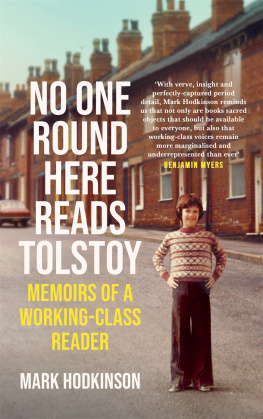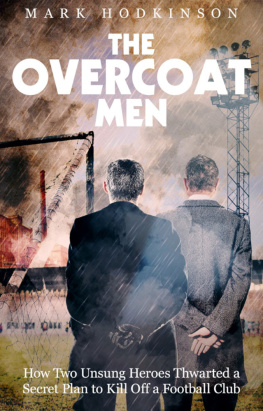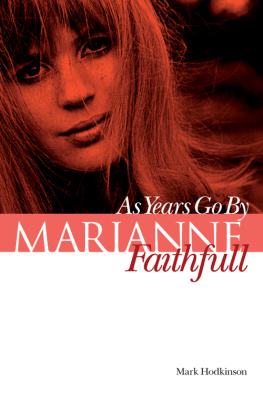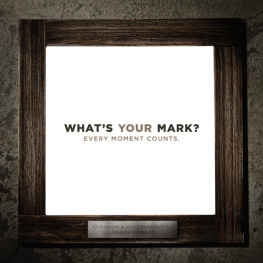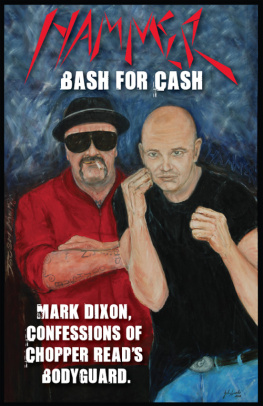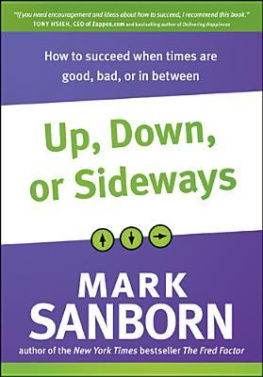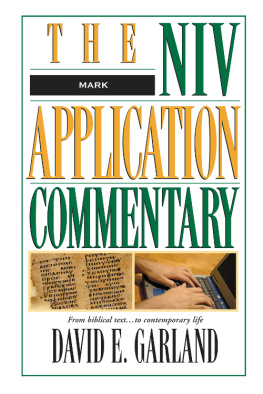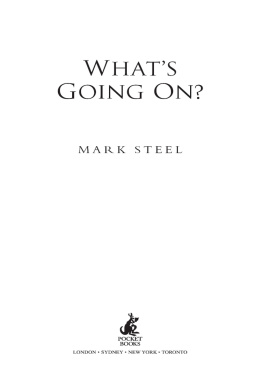
ALSO BY MARK HODKINSON
That Summer Feeling
The Last Mad Surge of Youth
The Overcoat Men
Believe in the Sign
Blue Moon: Down Among the Dead Men with Manchester City
Life at the Top
Mark records and releases music as Black Sedan:
www.blacksedan.info

First published in Great Britain, the USA and Canada in 2022 by
Canongate Books Ltd, 14 High Street, Edinburgh EH1 1TE
Distributed in the USA by Publishers Group West
and in Canada by Publishers Group Canada
canongate.co.uk
This digital edition first published in 2021 by Canongate Books
Copyright Mark Hodkinson, 2022
The right of Mark Hodkinson to be identified as the author of this work has been asserted by him in accordance with the Copyright, Designs and Patents Act 1988
Every effort has been made to trace copyright holders and obtain their permission for the use of copyright material. The publisher apologises for any errors or omissions and would be grateful if notified of any corrections that should be incorporated in future reprints or editions of this book.
Plastic Bag by X-Ray Spex. Lyrics written by Marianne Joan Elliott-Said (Poly Strene). Published by Maxwood Music Limited
Some names and identifying characteristics have been changed to protect the privacy of the individuals involved.
British Library Cataloguing-in-Publication Data
A catalogue record for this book is available on request from the British Library
ISBN 978 1 78689 997 2
eISBN 978 1 78689 998 9
For Jean and Roy
I recall a bigger brighter world,
A world of books and silent times in thought.
The Go-Betweens, Cattle and Cane
(McLennan/Forster)
CONTENTS
PREFACE
The walls are closing in. They used to be over there, a few metres away. Now, if I lean over I can touch them. This is what happens when you collect books and store them on big shelves in a small house. The process occurs imperceptibly, similar to the passing of time, where you think little has changed but then see a picture of yourself from a decade ago and sigh, Bloody hell!
I had no idea that 3,500 books (and ever rising) was an especially large number. The same as I thought having one book in my childhood home wasnt particularly unusual either. Im much the same with music. I have thousands of CDs and filled three iPods with more than 60,000 tracks before subscribing to a streaming service. We are what we are, we do what we do, and it takes others to point out deviations from normal.
I first saw books in a house, lots of them, when I was seventeen and had visited the family home of a college pal. Im not one to use the word awestruck or act in a way revealing such a state. But, that day, in my Italian combat jacket and with my hair at its flick-fringe best, I was struck by awe, hard. I want all this, I thought. Books upon books. All around me.
Even back then, I knew this wouldnt be a mission undertaken for the sake of it or to show off, a sly appropriation of look-at-me cleverness. I was already aware of the true appeal of books, their brilliance and their beauty. As I saw it (and still do), each book was a portal to a new world or a new version of the world, where, afterwards, you should feel slightly or, better still, radically changed. Was there anything more irresistible? Also, if you are brought up in a home almost entirely devoid of culture or any acknowledgement of the arts, you are free to build your own personality, and I did this through music and books.
Initially, the main theme of this particular book, my book, was to be deferred gratification a term beloved by sociologists and psychologists and how it related to the accrual of a personal library. In short, what did it say about someone? What did it mean? And when, exactly, would all these books ever be read? We even had a provisional title, How Soon Is Now?
The best books, the same as the best days, skitter on the breeze. They go their own way. While there remains a robust appraisal of the original topic, the beating heart of this book lies elsewhere. Only in the writing of it did I come to appreciate the relative singularity of a kid from a working-class home where books were objects of disdain, and who struggled in a CSE group in a comprehensive school (I pity you with this lot.), later becoming a bibliophile. Not to mention a journalist, author and publisher.
Class is often used as camouflage for self-pity. Or, in a we had it worse race to the bottom, it can take on a comedic aspect see the Four Yorkshiremen sketch featuring members of Monty Python. For my part, Ive written about my background, my family and my town as I found it and remembered it and with no other agenda, at least on a conscious level.
As my working-classness came out naturally, so did the interwoven story of my poor, tormented grandad. It was he, in his vitality, wisdom and mutiny, who did most to shape the boy who became the man who collected the books. I wanted to tell this tale of an ordinary bloke because I sense there were many John William Duffys. One on every street perhaps, where families did their best, day after day, to cope, get by, with little support or even acknowledgement.
This is a book about books by a book lover, a hotchpotch of metaphorical byways, lay-bys and even the odd thoroughfare. To complete it I locked myself away for the best part of a year with my collection. I have included a stand-alone section at the end to faithfully reflect this period. There are notes on items found within the pages of my books; a run-through of titles I hadnt read but finally did and a rsum of my various To Be Read piles. Please view this section as similar to extra features on a DVD or, if youre of a certain age, the bonus track on a 12-inch single (gatefold sleeve, with satin patch).
I have seen books all ways up, inside and out, author to publisher, reviewer to collector. I have shared all Ive learned, including concise histories of favourite authors and publishers; the importance of blurbs and author photos; the aesthetic of design; the role of agents; a self-help guide to publishing and, of course, theres Dirty Raymond and a box marked Brainy (in felt tip). Books upon books.
Mark Hodkinson
2022
___________
Certificate of Secondary Education. More on this later.
PART ONE
How Did I Get Here?
CHAPTER ONE
A couple of years ago we were moving to a new house on the same estate, round the corner. People often say round the corner when its really about a mile or so away, past the petrol station, a church, row of shops and a car park of a shut-down pub turned into a hand car wash. But we were literally moving round the corner; Google Maps lists the journey as three minutes on foot and one minute by bike. Too near, then, to make it worthwhile hiring a removal firm. The plan was failsafe: load up the cars a few times with boxes and bin bags while family members and friends lugged the beds, settee, chairs, bookcases, coffee table, drawers and wardrobes through the streets. And wed start early in the day to minimise the number of witnesses to this meticulously organised if irregular flit.
I had piled hundreds of books onto the bed and was putting them into appropriate boxes, marked in pen: history, media, politics, novels AC and so forth. I looked out of the window. A railway embankment runs parallel to the estate and the line is level with the first floor of the houses, forming a pleasant ribbon of nature. Buddleia, gorse and bramble fight for growing space with the rhododendron, lilac bushes, cow parsley and birch saplings. It was early August. Everything was still, not a leaf shuddered or a stem swayed. When we conjure thoughts of late summer it is light and bright but that day, the day we moved house, the weather was bellyaching between absent and overcast. At least it wasnt raining.

